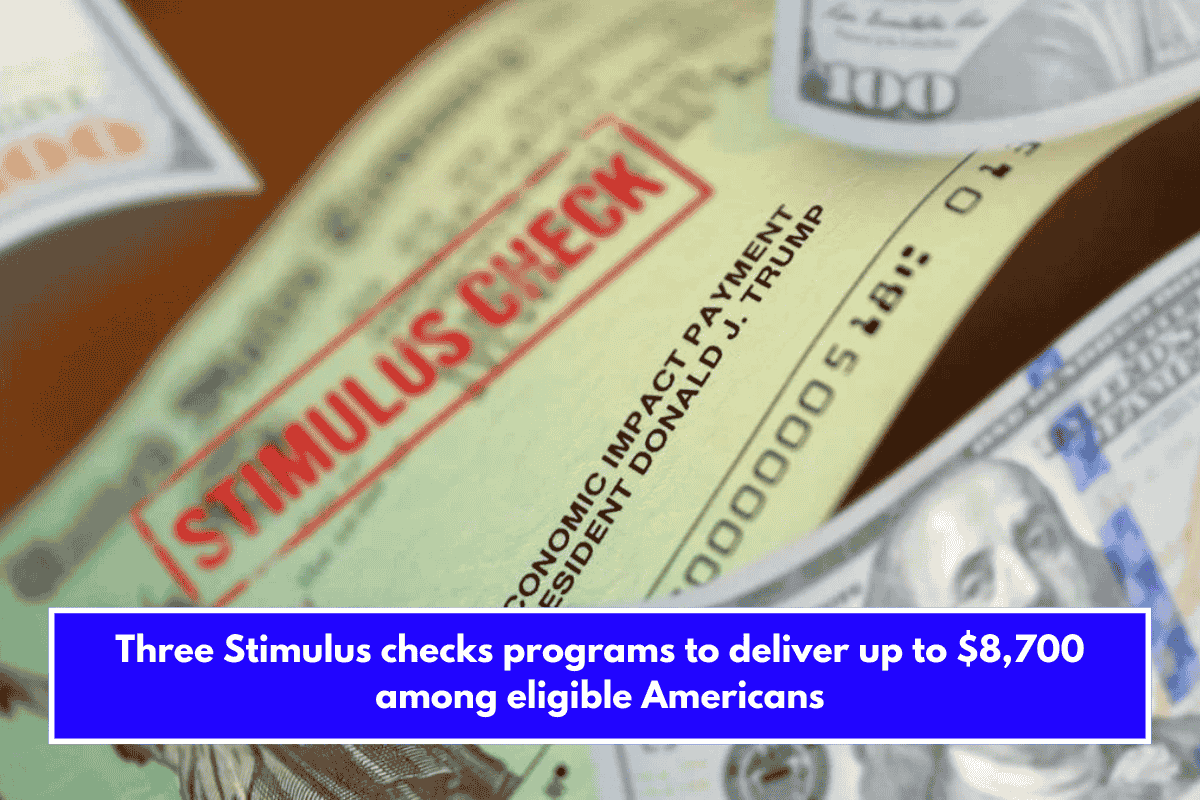If you are concerned about the $670 COLA increase in April 2025, you are not alone. Millions of Americans rely on Social Security, SSDI, or SSI benefits to meet their daily needs, so any changes to these payments can have a significant impact. What is the good news?
A 2.5% Cost-of-Living Adjustment (COLA) has been announced, providing recipients with a much-needed financial boost to combat inflation and rising living costs. The annual COLA increase is more than just a number on paper; it has a direct impact on your household budget and quality of life.
Whether you’re already retired, receiving disability benefits, or assisting a family member with Social Security, understanding how these changes affect your finances is critical. It can help you make better decisions, plan ahead, and avoid surprises in the future.
In this comprehensive guide, we’ll go over what the COLA increase means, who is eligible, how it works, how to prepare, and what you need to do (spoiler alert: not much!). Whether you’re a retiree, caregiver, or working professional planning your financial future, this guide will teach you everything you need to know about the April 2025 COLA increase.
COLA Increase of $670 in April 2025
| Topic | Details |
|---|---|
| COLA Increase Rate | 2.5% |
| Monthly Increase | Approx. $47 for average benefit of $1,872; up to $670 depending on benefit type and amount |
| Effective Date | Payments reflecting COLA start in January 2025; increase noticed by April 2025 |
| Eligibility | Retirees, SSDI recipients, SSI beneficiaries, and survivors receiving Social Security payments |
| How to Receive | Automatically applied by SSA; no action required |
| Official Source | Social Security Administration |
The $670 COLA increase in April 2025, driven by a 2.5% adjustment, provides critical financial relief to millions of Americans living on fixed incomes. It’s a simple but effective tool for helping Social Security, SSDI, and SSI recipients keep up with the rising cost of living.
From groceries to medical bills, your monthly expenses are increasing. This COLA increase ensures that your benefits can better meet your requirements. And, because it is applied automatically, all you need to do is stay informed, check your payment schedule, and plan ahead.
If you have any concerns about how this increase will affect your taxes, Medicare deductions, or eligibility for other programs, please contact an SSA representative or a financial advisor. Staying proactive is the most effective way to protect your benefits and future.
What is COLA and Why It Matters
The Cost-of-Living Adjustment (COLA) is an annual increase in Social Security and other federal benefits that allows recipients to keep up with inflation. It is linked to the Consumer Price Index for Urban Wage Earners and Clerical Workers (CPI-W), which calculates the average price change over time for goods and services.
Simply put, COLA helps ensure that your benefits retain their value year after year. Without it, the purchasing power of your payments would decrease every time prices rose. This adjustment allows you to cover basic expenses such as food, rent, medication, and transportation, all of which tend to rise over time.
For example, if your grocery bill used to be $200 per month but has since risen to $215 due to inflation, a COLA increase helps close the gap. The adjustment serves as a built-in cost protection feature, ensuring that your fixed income remains relevant and effective.
Who is Eligible for the COLA Increase?
The 2.5% COLA increase in 2025 automatically applies to the following individuals:
- Social Security Retirement Beneficiaries: If you’re already receiving monthly retirement checks from the SSA, your benefits will increase automatically.
- Social Security Disability Insurance (SSDI) Recipients: Individuals who are unable to work due to a qualifying disability will also receive the adjustment.
- Supplemental Security Income (SSI) Beneficiaries: Low-income individuals, particularly the elderly or disabled, who receive SSI benefits will see an increase in their payments.
- Survivors and Dependents: Spouses, children, or dependents of deceased workers receiving benefits are included in the adjustment.
Good to Know: You do not need to do anything to receive the increase. The Social Security Administration (SSA) will automatically apply the new COLA to all eligible benefit payments. No forms, no phone calls, and no hassle.
Even if you begin receiving benefits in early 2025, you may experience a prorated increase depending on when your benefits begin and what you are eligible for. It’s also worth noting that those who qualify for multiple types of benefits (e.g., SSI and SSDI) will receive a COLA for each program.

How Much More Will You Receive?
While the average increase is around $47 per month, your actual increase will be based on your current benefit amount and eligibility. Here’s how it could look in various scenarios:
- A retiree currently receiving $2,500 monthly would get an extra $62.50.
- A disabled individual receiving $1,200 per month would get an increase of $30.00.
- An SSI couple receiving the maximum combined federal payment ($1,415) would see it increase to approximately $1,450.
Maximum Increase: Some higher-tier beneficiaries could see a monthly boost of up to $670, particularly those receiving multiple or larger benefits.
To calculate your own projected increase, multiply your current monthly benefit by 0.025 (2.5%). For example:
Current Benefit: $1,800
COLA Increase: $1,800 x 0.025 = $45
New Benefit: $1,845
When Will You Receive the COLA Increase?
The COLA takes effect with December 2024 benefits, which are actually paid in January 2025. Most recipients will see their first increase in payment during that month.
However, due to the timing of deposits and benefit processing, some recipients may not experience the full financial impact until April 2025.
Here’s a more detailed breakdown of the average Social Security payment schedule:
- SSI (Supplemental Security Income): Payments are deposited on the 1st of each month.
- SS & SSDI (Social Security/Disability Insurance): Payments follow a staggered schedule depending on your birth date:
- Born 1st–10th: Second Wednesday of each month
- Born 11th–20th: Third Wednesday of each month
- Born 21st–31st: Fourth Wednesday of each month
If your payment is delayed or you see a discrepancy, it’s worth checking your My Social Security Account or calling the SSA directly.
How to Check Your New Benefit Amount
Wondering exactly how much more you’ll be getting each month? There are several reliable ways to verify your new benefit:
- Online: Log into your My Social Security Account to view detailed benefit updates.
- Paper Notice: The SSA typically mails a COLA notice in December explaining your new payment amount.
- Call SSA: Speak with a representative by calling 1-800-772-1213 (TTY: 1-800-325-0778) during business hours.
- Local SSA Office: Visit your nearest SSA location. It’s best to schedule an appointment to minimize wait times. Use the SSA Office Locator to find your local branch.
Other Things to Consider
Medicare Part B Premiums May Offset Increases
While a COLA increase is good news, it may be offset by rising Medicare Part B premiums, which are typically deducted from your Social Security check. In 2025, the projected monthly Part B premium is $185, up from the previous year. This means your net increase may be lower than expected, particularly if you have high healthcare costs.
Income Taxes on Benefits
Did you know that up to 85% of your Social Security benefits may be taxable if you have other sources of income? If you file taxes as an individual and your total income exceeds $25,000 (or $32,000 for married couples filing jointly), some of your benefits may be subject to federal income tax. Consult a tax advisor to better understand your obligations.
Smart Budgeting Tips
With prices rising across the board, it’s prudent to factor your COLA increase into a revised budget. Consider allocating additional funds for emergency savings, debt repayment, or covering increased utility or prescription costs. A little planning can significantly improve your financial situation.
Impact on Other Assistance Programs
A COLA increase may have an impact on eligibility thresholds for people enrolled in need-based programs such as Medicaid, SNAP (food stamps), or housing assistance. Check with your caseworker to see if any changes are needed to your documentation or benefits.



















